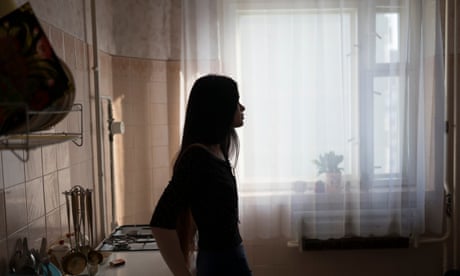- by foxnews
- 03 Apr 2025
Australian research finds effects of loneliness during Covid lockdowns ‘substantial and uneven’
Australian research finds effects of loneliness during Covid lockdowns ‘substantial and uneven’
- by theguardian
- 24 Jun 2022
- in news

"Everyone became withdrawn, even after restrictions ended," one man said of his experience following Australia's pandemic lockdowns.
New research has found that lockdown loneliness has, for many people, lingered. Even though most restrictions have been lifted, social networks that were disrupted by the pandemic haven't been stitched back together in the same way.
The University of Wollongong and the University of Sydney study, released on Friday, also found there is a "loneliness gap". Those who were the least lonely going into the pandemic bounced back; their loneliness passed, while the loneliest became even lonelier.
That residual loneliness was higher for people on low incomes, those who lacked strong ties before Covid, people with disabilities and their carers. And experts warn that loneliness increases the chance of poor health outcomes, from early death to anxiety, depression and even dementia.
The research, published in the Australian Journal of Social Issues, defined loneliness as "a discrepancy between desired and available relationships, or a lack of quality relationships that provide meaningful interaction and support".
It collected responses from the 2020 lockdowns onwards for 2,605 participants and found the impacts of the pandemic lasted beyond the various "freedom days" when lockdowns were lifted.
"Participants reported heightened loneliness attributable to: physical isolation, health anxieties, ceased activities, reduced connection quality, and poor motivation," the study found.
"Covid also created new interactive difficulties for singles, those with physical and mental disabilities, their carers, and those with low social capital."
Of those who felt lonely "at least some of the time", about 48% felt lonely in lockdown, while 41% felt lonely after lockdown.
Most of the data was qualitative, but quantitive data found men, people with strong ties, and those in relationships were more likely to rebound better after lockdowns, while people on low incomes, carers, and people with disabilities were less likely to recover swiftly.
The study's co-author, Roger Patulny, an associate professor of sociology at the University of Wollongong, said it was possible that men transitioned better out of lockdown because they were more likely to swiftly resume activities, whereas women may not have been able to resume meaningful connections as quickly.
And people on low incomes suffered more, he said.
The study also found increased digital interaction such as through video conferencing was not a "panacea for diminished physical interaction in the post-pandemic world". For some people, digital interaction might supplement quality relationships, while for others it might supplant them.
Across Australia, the participants had a median 73 days in lockdowns, and the study pointed out that Victorians were disproportionately affected.
Covid's impact was "substantial and uneven", the research found.
Existing disconnection and loneliness was exacerbated, while new inequalities in loneliness were revealed. Some home-based family relationships were strengthened, while new romantic partnerships were thwarted. Life was "interrupted" in different ways for different people.
"I go for weeks without seeing friends and loved ones face to face," one 36-year-old woman said, describing herself as "devastated" by lockdowns.
"Online alternatives help a lot, but it's not the same and not enough."
However, some people felt more "equal" online, while others built better relationships or cut off lower quality ones. More time with family could foster closeness - or distance.
Others talked about the anxiety of not having a partner or an existing group of friends, and the worry of trying to form new relationships, while still others talked about their job loss and the impact that had on their human interactions.
Patulny emphasised that loneliness doesn't come from a lack of relationships, but from a lack of quality relationships.
"People can be in a crowded room and interact with other people, but be lonely," he said.
- by foxnews
- descember 09, 2016
Flight passenger says man deliberately squatted in window seat, ignites social media debate
An airline flyer said a seat squatter tried to tell her to swap seats with him, but she stood her ground, prompting a social media debate. A travel expert weighs in.
read more


